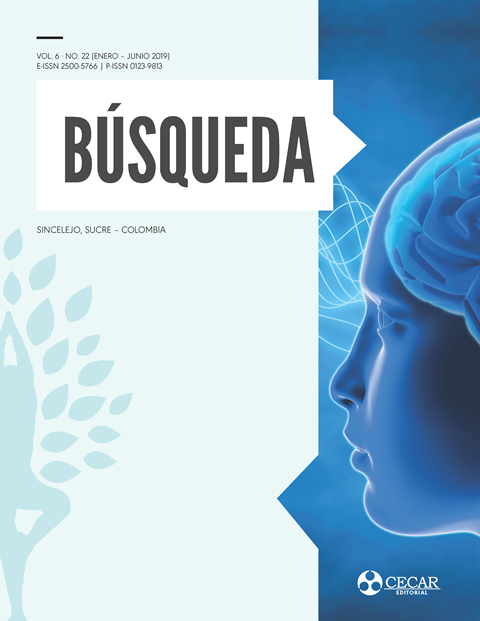Abstract
Objective. The present article intends to problematize the debate on the category poverty in the production of knowledge and in the professional training of the Social Worker. Method. This article is based on documentary and bibliographical research. Results. The results point to the predominance of theoretical approaches on the category poverty in the scope of Social Work from a prism of totality, in which the current relations of society unleash a process of social inequalities where abundance and misery coexist contradictorily. In this sense, the investigation indicates the existence of some consensus and dissent among the authors with respect to the need to insert in the professional formation of the Social Worker the analysis on the origins and expressions of the phenomenon Poverty. Conclusions. It is concluded that, although there is in the scope of professional formation the predominance of conceptions of poverty affiliated to the Marxist tradition, there coexist conceptions of poverty linked to the opposing theoretical-methodological matrices, which bring criticisms to the critical-dialectic perspective. Thus, an analytical framework marked by polemics and relevant theoretical and methodological attacks is formed, resulting in the production of new studies and research in the area of Social Work.
Keywords:
Licence

This work is licensed under a Creative Commons Attribution-ShareAlike 4.0 International License.
References
Amman, S. B. (2013). Expresiones de la pobreza en Brasil: análisis a partir de las desigualdades regionales. SP: Cortez.
Brasil (2004). Política Nacional de Asistencia Social. Ministerio de Desarrollo Social y Combate a la Pobreza: Brasília.
Guerra, Y. D. (2013). Formación profesional en el Trabajo social: polémicas y desafíos. In: Silva, J. F. S.; Sant’Ana, R. S.; Lourenço, E. A. S (org). Sociabilidad burguesa y trabajo social. RJ: Editora Lumens Juris.
Iamamoto, M. V. (2008). Trabajo social en tiempos de capital fetiche: capital financiero, trabajo y cuestión social. SP: Cortez.
Martinelli, M. L. (2011). Trabajo Social: Identidad y enajenación. SP: Cortez.
Mota, A. E.; Maranhão, C. H.; Sitcovsky, M. (2008.) Las tendencias de la política de asistencia social, el sistema único de asistencia social y la formación profesional. En: el mito de la asistencia social: ensayos sobre Estado, política y sociedad. Mota, A. E. (org). (2. ed.). SP: Cortez.
Sem, A. (2010). Desarrollo como libertad. Tradução Laura Teixeira Motta. SP: Companhia das Letras.
Silva, M. O. S. (2016). Pobreza y políticas de enfrentamiento a la pobreza / Organizadora Maria Ozanira da Silva e Silva – São Luís: EDUFMA.
Silva, E. A.; Domingos, M. (2017). Las representaciones sociales de los cursistas de la Iniciativa Educación, Pobreza y Desigualdad Social sobre la pobreza. Relatório de Pesquisa. Natal. Mimeo.
Siqueira, L. (2013). Pobreza y Trabajo social: diferentes concepciones y compromisos políticos. SP: Cortez
Telles, V. S. (2013). Pobreza y ciudadanía. SP: Programa de Pós Graduação em Sociologia da FFLCH-USP/editora 34, (2ª ed).
Yasbek, M. C. (2012). Pobreza en el Brasil contemporáneo y formas de enfrentamiento. In: Revista Serviço Social e Sociedade, 110.


 PDF (Español (España))
PDF (Español (España))
 HTML (Español (España))
HTML (Español (España))
 Epub (Español (España))
Epub (Español (España))



